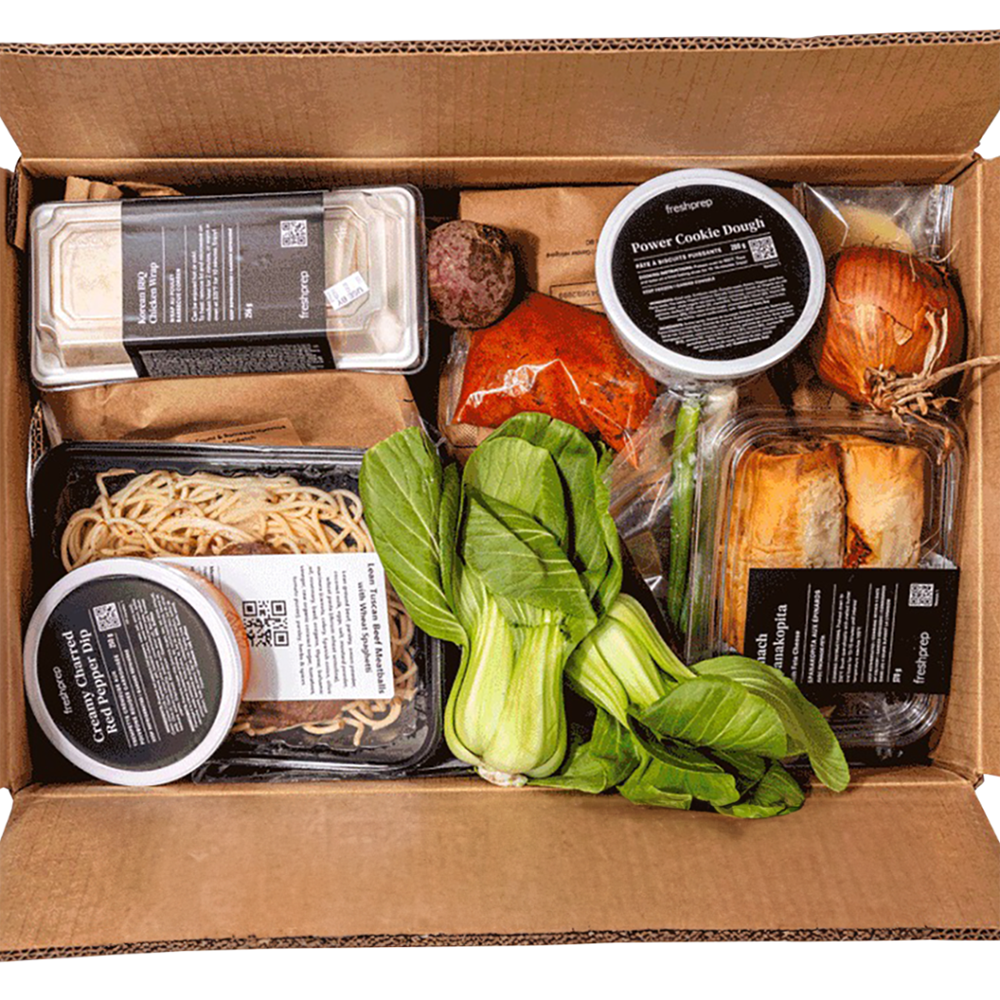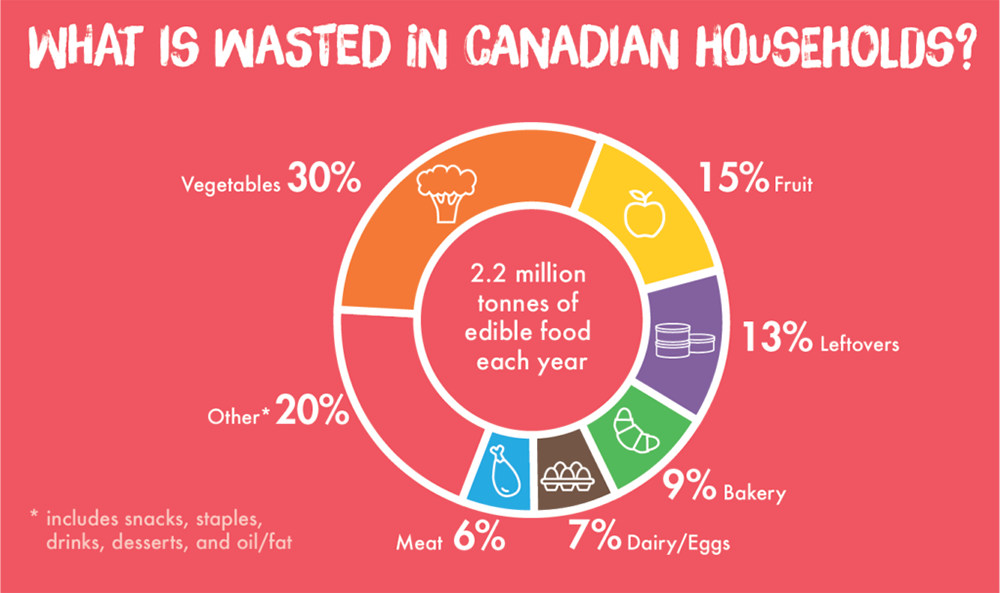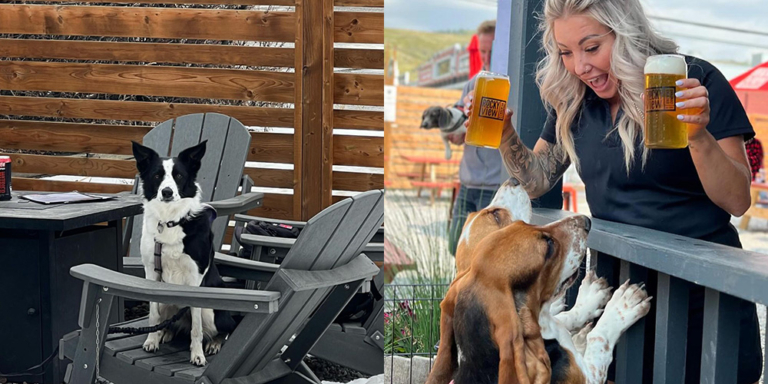What if we told you you could cut back on your grocery costs and on food waste in one fell swoop?

Look no further than Peko Produce, a food recovery subscription and delivery service.
Through their website, Calgarians can get mystery bags of veggies delivered to their doorstep at up to 40 percent off grocery store prices.
Peko’s mystery bags contain over 12 pounds of peculiar and surplus produce, including more than ten varieties of vegetables and fruits.
Sounds fun and yummy at the same time.
Peculiar produce includes such things as bruised bananas, three-pronged carrots, curvy cucumbers, or misshaped apples.
The imperfect produce Peko offers might look rough on the outside, but they are perfectly safe to eat—a reminder never to judge a book by its cover!
An Idea Sprouted to Reality
The green thumbs behind Peko are Sang Le and Arielle Lok.
The eco-minded duo founded Peko in 2021 in Vancouver as university students.

Le studied at the University of British Columbia, whereas Lok was a student at McGill University in Montreal.
Lok moved to Vancouver during the pandemic to be with Le, whom she met online, and the rest is history.
According to Peko, almost 60 percent of all food produced in Canada is wasted annually, and over $3.1 billion worth of produce is rejected for cosmetic reasons.
Instead of letting these rejected products go to waste, Peko buys them in bulk at a discount and sells them to its customers at affordable prices.
“With imperfect food and surplus fruit, a lot of times there isn’t quite an established market for them to go to, so a lot of times that will be thrown out, and that’s how the savings part came along,” Sang Le told CTV News.
Along with Peko, other options for using up surplus, dated or imperfect fruit and veggies in Alberta include Second Harvest, which does food rescue to feed people and livestock, and FlashFood, a Canadian-made app that offers consumers massive savings on fresh food items like meat and produce that are nearing their best-before date at grocery stores across Canada
A Happy Customer
A university student’s diet often consists of ramen and pizza, but Mount Royal University student Caitlin Zorn realized that didn’t have to be the case with Peko.
“It gets delivered to your house, and it’s so cost-effective, and the marketing for the peculiar vegetables really, really caught my eye,” said Zorn.
The mystery box also contains surplus produce, which refers to the excess food grocery stores end up with when they overstock.
For example, a grocery store might order 64 units of lemons but only sell 40. The remaining 24 units would normally go to waste.
However, Peko buys these units at a discount, allowing them to sell to customers much cheaper than the retail price.
Zorn gets a weekly Peko Mystery Box of groceries for $30. The box includes “5+ varieties of proteins, dairy, pantry goods, and/or produce,” so each week is a new surprise.
Zorn used to spend twice as much buying just fruits and vegetables from supermarkets.
In addition to cutting down on food waste and cost, Peko is fun.

Zorn and her mom enjoy opening a mystery box together on FaceTime and brainstorming potential recipes using the ingredients they receive.
“We will get a peculiar-looking bell pepper. Some bananas will be brown already, but it’s easy to just pop those in the freezer and have those for smoothies or muffins,” said Zorn.
Through Peko, Zorn has learned how to slice a whole pineapple and cook daikon soup.
Currently, Peko delivers to Metro Vancouver and Calgary. The brand sources its products from local farmers and local wholesalers.
Since May 2021, Peko has saved customers over $1 million in grocery bills and diverted over 200,000 pounds of food from landfills. In rare cases where Peko has a surplus of produce, the brand gives it to its employees or donates it to Vancouver Food Runners, a non-profit organization committed to reducing food waste.

The Bigger Picture
The existence of programs like Peko speaks to Canada’s overwhelming food waste and increasing grocery store prices.
According to the National Zero Waste Council’s research, almost 2 million tonnes of edible food is wasted yearly, costing Canadians over $21 billion.
In addition to costing a pretty penny, food waste also produces greenhouse gases when it decomposes.
Food waste in Canada produces almost 7 million tonnes of carbon pollution, equivalent to over 2 million cars on the road.
However, according to Sylvain Charlebois of Dalhousie University’s Agri-Food Analytics Lab, more expensive groceries and a higher cost of living are pushing Canadians to spend less on healthy food.
Instead of spending money on healthy foods, Canadians pay the same amount or less for calorie-rich, nutritionally poor food products.
For example, instead of buying $40 of produce that will last a week, a person might spend $40 on frozen, processed foods that will last them two weeks.
Looking at Canada’s Food Price Report 2024, can you blame them? The report claims that a healthy diet costs about $340 a month for one person, but the average Canadian spends $248.
A 2021 survey conducted by the Canadian Hub for Applied Social Research found that food is one of the first things Canadians cut back on to save money.
Twenty percent of respondents reduced their meal sizes, skipped meals altogether, or opted for cheaper, nutritionally poor products like instant noodles.
We shouldn’t have to compromise our health to survive. Thankfully, applications like Peko are a healthy alternative for Canadians on a budget and are simultaneously good for the environment.
Charlebois claims that almost half of Canadians use food rescue services, which makes you wonder: what would these Canadians do without these needed food recovery services?
The good news is more and more food recovery programs are starting across Canada to help with healthy food distribution.
Where this is a need, Canadians fill it.







